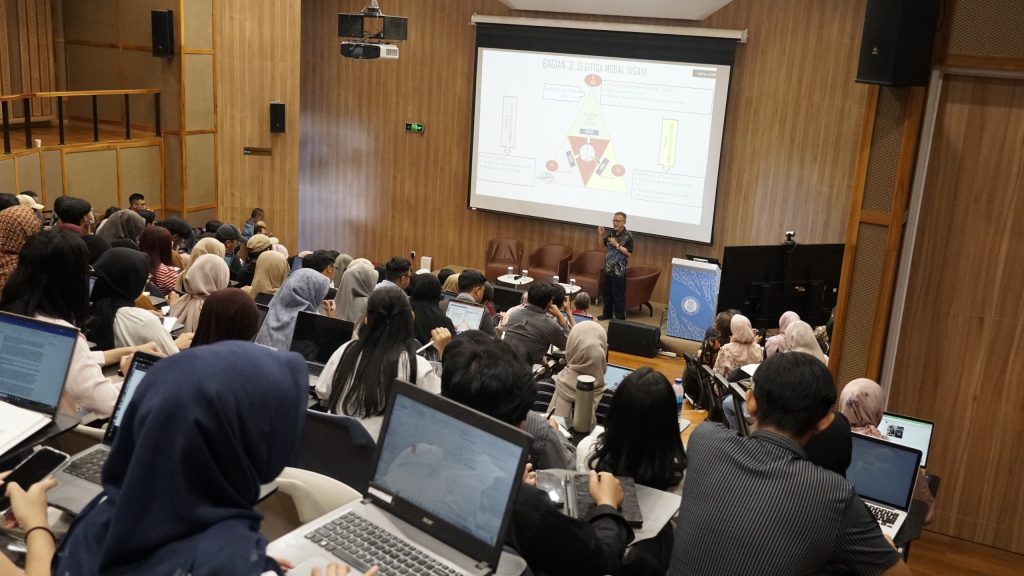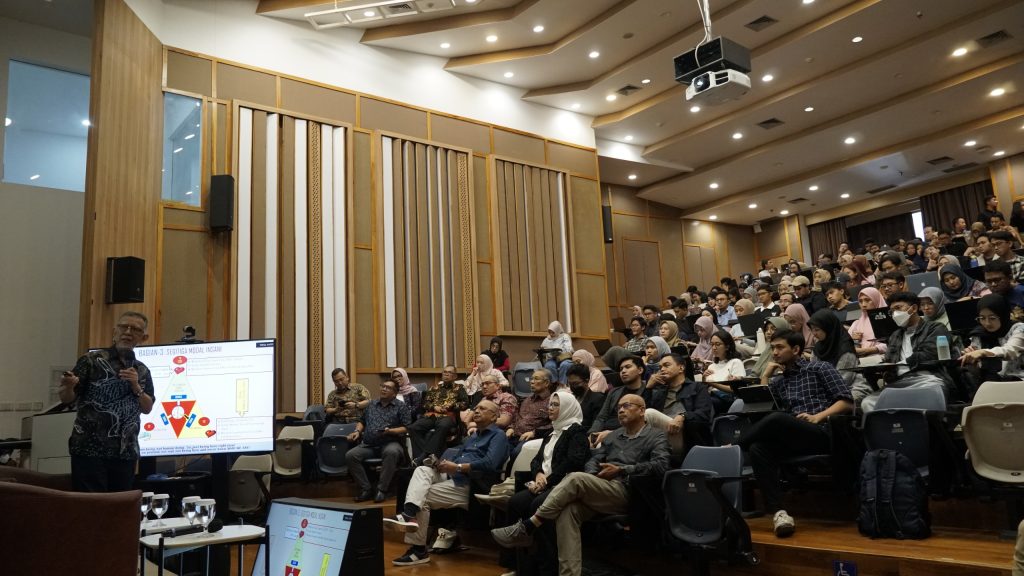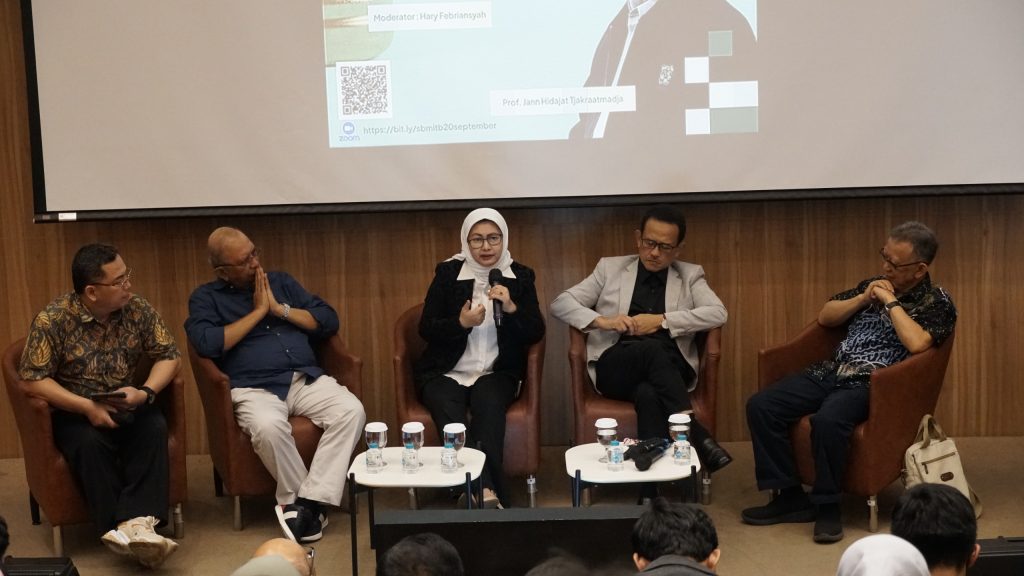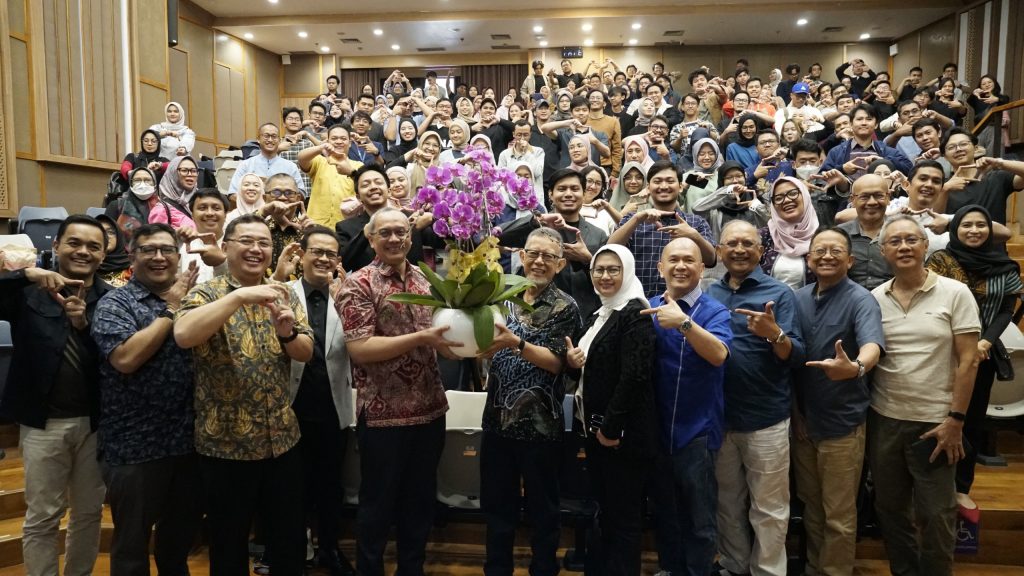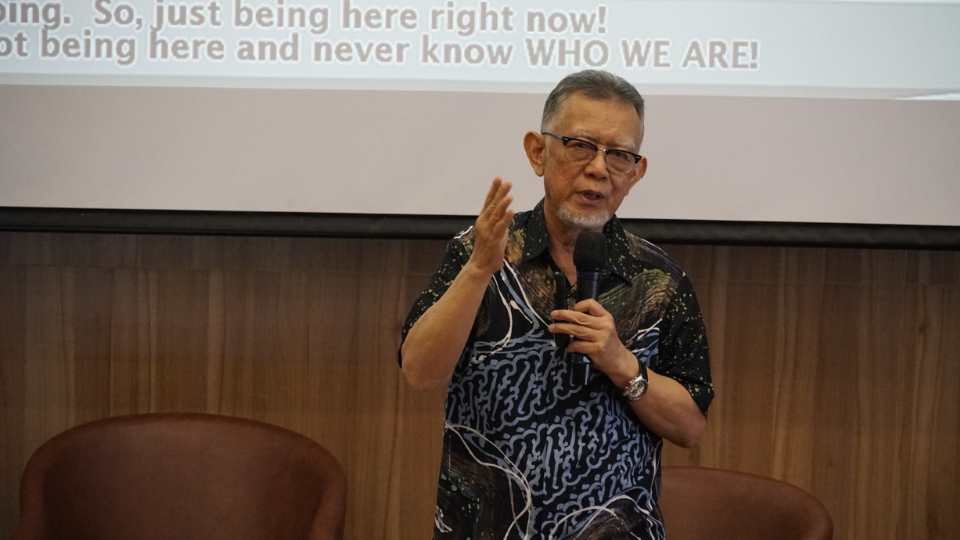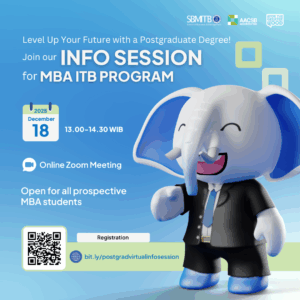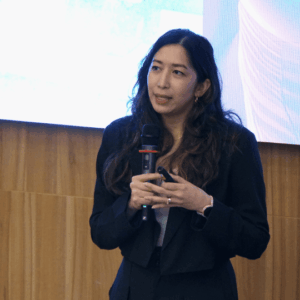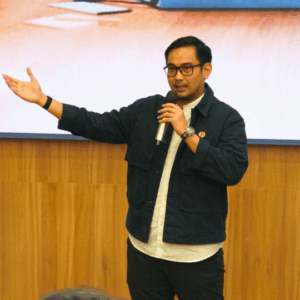Learning is a process or human effort to develop knowledge individually and organizationally. Knowledge results from learning, which determines attitudes and behavior and the human capacity to change, do good deeds or act more effectively.
“Learning and knowledge are not just connected, they are inseparable, like yin and yang,” proclaimed Prof. Dr. Ir. Jann Hidajat Tjakraatmadja, a distinguished professor at the SBM ITB. His words, spoken at a public lecture hosted by SBM ITB in Bandung on Friday (20/9), resonated with the 300 SBM ITB students.
At the public lecture, Prof. Jann Hidajat introduced the concept of “Transcendental Knowledge Management.” He underscored the significance of learning transcendentally, a belief in the limitless potential of the human mind and emotions. This, he argued, requires guidance from the study of transcendental knowledge, particularly the understanding of “compassion” from the Almighty (Ilmu Laduni), to navigate the world and the afterlife successfully.
According to Jann, transcendental is one of the Human Capital Triangles owned by a human being, namely Transcendental/Spiritual Quotient (TQ/SQ), Intellectual Quotient (IQ), and Emotional Quotient (EQ). Transcendental/Spiritual Quotient (TQ/SQ) involves the afterlife with the function of recording the quality of the qolbu or soul. At the same time, the Intellectual Quotient (IQ) involves the world and records information quality. Meanwhile, the Emotional Quotient (EQ) involves the world and records mental quality.
Jann added that there are four dimensions of human life in the world. Namely, the dimension of the qolbu (soul), the dimension of the body, lust (lust), and the devil.
“A good human being can control his body,” explained Jann. “If the soul does not control the body, it will be wild with lust and demons.”
The public lecture continued with a talk show themed “Knowledge, Wisdom, and Spirituality: Foundations for a Sustainable Future.” Three speakers presented at the talk show: Heru Prasetyo, Priyantono Rudito, and Prof. Dian Masyita.
Dian Masyita had a spiritual experience during the 1998 economic crisis, and all economic theories were no longer meaningful. She searched for the meaning of life elsewhere and finally found another purpose.
“The spiritual element (searching for the meaning of life) is something that drives us to do something,” said the International Islamic University of Indonesia lecturer.
Meanwhile, Heru Prasetyo explained knowledge management more deeply in practice. According to Heru, humans have two sources of power used by leaders, namely power from position (Rewards, Coercion, Legitimacy) and also power from humans (Expertise, Reference).
“If we want more power, then we will also need more knowledge to achieve it,” said the knowledge management practitioner.
Priyantono Rudito, a human capital expert, explained leadership challenges. Three leadership challenges will be found in life: determining future desires, moving forward with your current resources, and using the resources you have as much as possible.
“The best resources are yourself and the people in your life.”
